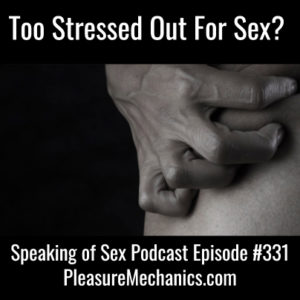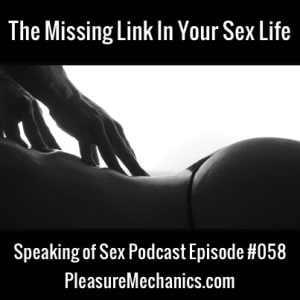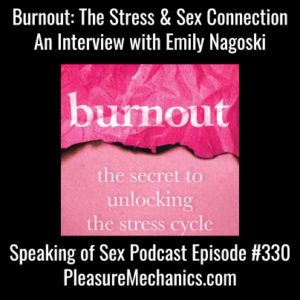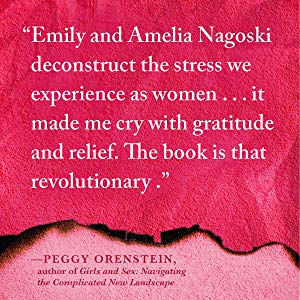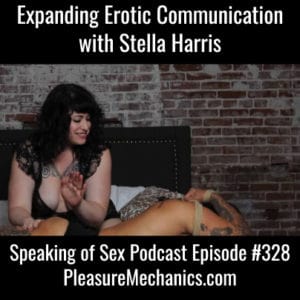Podcast: Play in new window | Download

Your body is good enough, sexy enough and you are worthy of limitless pleasure. How easy is it for you to believe that simple statement?
For many of us, body shame, insecurities and judgment create a tremendous amount of stress and struggle. We are taught that our bodies will never be good enough, and that we have to sweat, struggle and strain to achieve a body that is more valuable and worthy of love.
To wrap up our month long theme focusing on Burnout and ending the stress cycles, we talk about BODIES. We look at how we can all transform our body shame and stress into acceptance and compassionate kindness towards our bodies, just as they are right now.
It is much easier to accept and be kind to our bodies when we receive social support and validation. Notice if your social media accounts make you feel energized or depleted, encouraged or frustrated, confident or insecure. You get to curate your own social media – so unfollow accounts that make you feel bad about yourself and follow more folks who are living in and loving their bodies, in all of their glory.
Check out our gallery of body positive accounts on Instagram for a much more nourishing feed!
What resources would be freed up for you if you accepted the idea that your body, as it is right now, is valuable and deserves to be loved and cherished? What if you were enough, just as you are, with no caveats? Can you accept the idea that you are someone’s hottest fantasy, as is?
Love the show? Show Some Love!
Transcript of Podcast Episode: Your Body Is Good Enough
Podcast transcripts are generated with love by humans, and thus may not be 100% accurate. Time stamps are included so you can cross reference or jump to any point in the podcast episode above. THANKS to the members of our Pleasure Pod for helping make transcripts and the rest of our free offerings happen! If you love what we offer, find ways to show your love and dive deeper with us here: SHOW SOME LOVE
Chris Rose: 00:00 Hi, welcome to Speaking of Sex with the Pleasure Mechanics. I’m Chris.
Charlotte Rose: 00:05 I am Charlotte.
Chris Rose: 00:06 We are the Pleasure Mechanics and on this podcast, we offer you soulful yet explicit advice on every facet of human sexuality. Come on over to Pleasuremechanics.com where you will find our complete podcast archive. And while you’re there go to Pleasuremechanics.com/free to enroll in our free online course, the Erotic Essentials, so we can get you started with some of our tried and true advice and strategies for maximizing the pleasure in your life. That’s Pleasuremechanics.com/free to get started tonight. On today’s episode we are going to be wrapping up our month of talking about burnout and completing the stress cycle for a more sexy life by talking about body image and all of the energy we bleed into worrying about our bodies and judging our bodies rather than enjoying our bodies and celebrating our bodies.
Chris Rose: 01:12 Before we get started, I want to say thanks to our sponsor… Oh wait, nevermind. We are now sponsor free. We are now sponsor free. Hurray. After a few months, about six months of experimenting with bringing sponsors on board, we recently decided to drop the ads and go sponsor free. We realized that we were spending too much time and too much energy focusing on what our sponsors wanted from us and not on what we wanted to deliver to you. We want this show and this relationship with you to be as clean and direct as possible so we can be as honest with you as possible and just continue to deliver really high value, effective sex talk in education. And to do that, we decided to drop the sponsorships. So this podcast will now be ad free for everyone. What this means though is that we do need your support.
Chris Rose: 02:20 We need you to show us love, to show us your support for this show. Come on over to patreon.com/PleasureMechanics. That’s P-A-T-R-E-O-N, patreon.com/PleasureMechanics and show your love with a sustaining monthly donation. If just a small percentage of the listeners of this show whose lives we know we’re reaching, we know we’re touching your hearts. If you can find it in your heart to throw us five bucks a month, that will give us a sustainable monthly income so we don’t have to worry about our bills and we can get down to the business of producing this weekly show for you, bringing you amazing educational resources and our online courses and doing our job, being your Pleasure Mechanics. We are here for you. We are here to optimize your sex life and root you on every step of the way. We are not here to sell you vitamins. So be gone sponsorships. Hallelujah. We are ad free again and here for you. But please come over to Patreon.com/Pleasure Mechanics and show your love and support for the show and show us that we made a good choice. Don’t make me feel like a fool. Patreon.com/Pleasure Mechanics.
Chris Rose: 03:44 All right. Into today’s episode, bodies. Body image, how we think about our bodies, how we feel in our bodies, and where are we directing our energy and our time and our resources? One of the chapters in Burnout is called the Bikini Industrial Complex. And the Nagoskis’ explore how the capitalist model of telling us our bodies aren’t good enough, aren’t sexy enough, aren’t healthy enough in order to sell us shit, has become such an intense cultural force that it is distracting all of us from living in our bodies. It’s causing all of us to judge one another and ourselves especially, and it’s a really limiting factor on how much we get to enjoy living in our bodies if we are constantly burdened with a sense of not being good enough. So we want to explore this relationship we have with our bodies and how we can get to a more loving, compassionate, and nonjudgmental stance in order to then enjoy, savor, celebrate, eroticize and yeah, experience ecstasy in our bodies. How can we experience more pleasure if we’re constantly tearing ourselves apart?
Charlotte Rose: 05:13 Yeah. Take a minute as we all having this conversation to reflect on your own life, how much time and energy has gone into critiquing and judging your own body and just think about how you could redirect that time and energy and what that could create in your life. It really becomes an energetic debt that we have and we’re holding constantly that is not necessary.
Chris Rose: 05:45 At first when I was looking at this chapter, I struggle to think about how it fit into the rest of the book about burnout and stress and managing stress. And then I realized that for a lot of people, body image and body shame is a tremendous source of stress, a daily grinding stress that wears us down, but also that tells us our bodies are not okay as they are. This is the message the Bikini Industrial Complex gives us. You are not good enough, you are not thin enough, you’re not pretty enough, you’re not healthy enough, you are not muscular enough, you are not enough, enough, enough. You are not enough. And therefore, you are not worthy of love, of pleasure, of connection, of partnership.
Chris Rose: 06:39 This equation that is messaged to us constantly in order to sell us the solution. They give us that crisis you are not good enough, here are all of the solutions for a price. Entire industries are built on this. The diet industry, the beauty industry and the capitalism is one issue here. This industrial complex that is so invested in messaging to us that we are not good enough, but it’s also the culture we live in that values certain bodies over others. That tells us that certain body types and shapes and presentations are inherently more valuable than others. And by creating that hierarchy and assigning more power and privilege to certain bodies over others, it sets us against each other as enemies. It isolates us and it puts us all in competition with another rather than uniting us around our shared experience of being humans around our shared experience of caring for one another and living more harmoniously together.
Chris Rose: 07:53 So without getting too Shangri-La about this, what we want to point out is that the culture we live in does not affirm most bodies and the inherent value and dignity and worthiness of those bodies. And we are part of our mission, part of the sex positive mission we are on, part of the mission of changing our sex culture. This is one pillar of it. We need to build a culture that affirms the inherent worth and dignity and value and yes, beauty of all bodies, of a diverse range of bodies. We need to explode the idea of what bodies are valuable and what values those bodies bring so that black and brown bodies, fat bodies, disabled bodies, bodies that are different in so many ways are as revered and celebrated and protected as all other bodies. What will that mean for your sex life? So we’re going to set those politics aside. That’s what we’re working towards, a world where all of our bodies have inherent dignity and value and are therefore protected the same.
Chris Rose: 09:15 Let’s bring this to a really individual level. How has your body image, how has your perception of your body and the feeling of worthiness and value you have about your body impacted your sex life from day one? If we’re honest with this question, most of us will be amazed, dismayed, shocked. It is very humbling to realize that from the beginning, from as we were emerging as children, as we are developing into our adolescence, as we’re having some of our first sexual experiences, as we are figuring out who we are in the mating game and who we want to be attracted to and who we want to be attracted to us. Throughout your lifetime of that process, have you felt worthy and valuable just as you are? How many of us can be like, yeah, I had been worthy since day one. No problem. Probably almost none of us. So we are all in this together. We are all struggling with this question in different ways.
Charlotte Rose: 10:27 It’s so sobering when you put it that way. To really take in how we have related to our body and what we are worthy of and how much pleasure we are allowed to experience. So how does this show up in our life? This can influence and impact who we feel worthy of going after, who we feel worthy of being attracted to.
Chris Rose: 10:50 Are they in my league? These ideas of leagues and scores. Is she a 10, are you a seven? Bullshit.
Charlotte Rose: 10:59 Right. And judging how attractive you are and finding a match that is like about the same level of attractiveness. These have so many judgments and so much self worth attached to how we identify our own attractiveness.
Chris Rose: 11:15 This’ll impact what you choose to do with your body. I really wanted to act in high school. I would never have gone on that stage because I was the fat girl. And the message was like, no one wants to look at you. Why would you put yourself on stage? So the sports you chose, the kinds of embodied physical activities you felt permission to enjoy, the pleasures you had to shut down because they weren’t appropriate for your body. And some of this happened before you were even aware. A lot of this happened in your very early childhood. And we inherit this message and then carry it into our entire development of our sense of self. And this is why when we start talking about some of the solutions and antidotes, we’re going to have to dig really deep here. This is some of the deepest deprogramming we are going to have to do collectively and individually to liberate ourselves from this nonsense that judges and shames our bodies and puts our bodies on a hierarchy of worthiness.
Chris Rose: 12:20 This is some of the biggest work to be done culturally. So we’re going to tackle it together. Oh yeah. So go through your life and notice your relationship with your body, what it allowed and what it took permission away from. And as Charlotte was saying, who did you feel permission to be attracted to? Who did you assume would be attracted to you? That is one of the biggest assumptions we need to interrupt because so many of us carry this feeling of no one will love me. No one will find me desirable. No one will want to fuck me because X, Y, and Z. And you fill in those X, Y, and Zs with your personal insecurities. But the thing is you are somebody’s fantasy. You, just as you are, someone is masturbating to you are right now. Can you believe that? So as I say that, some of you will be like, yeah, I can see that. People will find me attractive.
Chris Rose: 13:19 There are people that would want to fantasize about me. Other people will not believe me when I say that. And yet when we look at the data, when we look at what people are searching in porn, when we look at what people find attractive, there’s a huge range of what people find attractive. There’s so many people who prefer bigger bodies, myself included. Charlotte included. There’s so many people who love more flesh to touch and the softness of curves and the aesthetic of curves. But those people sometimes feel ashamed about admitting their desire for bigger bodies and do it in secret. And some people just, even if someone is flirting with them, they would never register it because they don’t believe they are worthy of that flirtation. So we need to internalize this idea that all bodies are desirable by someone and that it’s not just how your body looks that people will find you desirable for.
Chris Rose: 14:23 When we talk about our bodies and our worthiness, it’s so easy just to talk about what it looks like. And skinniness versus fatness and the color of our skin and our hair and the gender archetypes. But we also need to remember that what attracts us to one another is our full selves, our personalities, our values, and if we allow it, those things can be expressed through the body. And this is another piece I just really want to focus on is that the obsession with normalization and the obsession with creating these aspirational ideas of what a man should look like and what a woman should look like. That obsession with all becoming the same aspirational norm limits our individual freakiness. It limits our individual expression. And when you allow who you are to come through your body and be expressed through your body, that is how you express your sexuality and your gender identity, who you are.
Chris Rose: 15:33 And by putting that out there, you then attract the people who are attracted to who you are. So both culturally, how we decorate our bodies, the clothes we wear, the way we move, the language we use, that’s a cultural expression and it sends signals that attract the people that are also interested in those cultures. If you finally get up the guts to shave half of your head, put an earring in your ear and wear different makeup, you might start being attractive to different people who are more into the same music and lifestyle you are. Do you know what I mean? The obsession with normalization prevents us from expressing who we are. And then that gets in the way of that natural flow of attraction that I believe is part of sexuality. It’s like this is who I am and it’s a calling card to bring in the people who will love you and cherish you and stand by you for exactly who you are.
Charlotte Rose: 16:37 That’s so beautiful. So you’re really talking about feeling worthy enough to have full self expression, to really wear and express what gives you pleasure. To decorate yourself through your own pleasure and have that be your compass and your why. Why you want to bring joy to the world by being your fullest self.
Chris Rose: 17:02 Right. And so for those women who love really high feminine expression and love decorating their bodies and would love to take the time to present in that way, great. But for a whole another subset of women who have no interest in makeup, who has no interest in playing that feminine role, what is being held back, what is not being expressed if they’re trying to fit into that box. As long as we’re all trying to conform, we’re not celebrating our differences and in not embracing all of our differences, we’re not then enjoying the full spectrum of who we can be together. And I really look to the gay subcultures for this. Within the gay male community, there are all of these different subcultures for all different body types and expressions. So there’s the hairy bears who the bear community celebrates big, hairy, chubby men. Within that community there the others who are skinnier, more athletic, hairy men.
Chris Rose: 18:07 And there’s all of this language to describe all of the different desires for different kinds of bodies and energies. And within that language, men find affirmation. And when you realize there’s bear camp in California every year and you can go be with a thousand other hairy chubby men who find you so hot, that is so permission giving. But a lot of straight people don’t have access to these multiple subcultures that tell them they are hot and desirable just as they are. And I will never forget the first time I got into a hot tub naked with all of these older lesbians and I was terrified to reveal my body. I thought they were going to kick me out of the party and I dropped my robe and I stepped in naked and they were like, mmm, fresh meat. They all wanted me.
Chris Rose: 19:04 And when I entered a community where I was desired and where I was a hot commodity for my fatness, for my butchness, it changes how you walk in the world because then it doesn’t matter of all the magazine covers. It doesn’t matter the gaze of other people. It’s all of a sudden like, I know who I am and I know that I am worthy of being desired, worthy of being loved. The people I want to fuck, want to fuck me, it’s a mindset that we all need to be able to step into in order to fully embody and enjoy our sexuality. But this takes work. It takes such deep deprogramming to realize we do not have to be at a war with our body. That it’s not about losing five pounds, that it’s not about gaining a little bit more muscle in definition in your pecs, and then you’ll be the guy of her dreams. That it’s not about your Dick size, that it’s not about how flushy your vulva is, that none of these things have any inherent value. It’s all cultural messaging.
Charlotte Rose: 20:17 The truth of it is that we all have inherent value no matter what, and that is a hard pill to swallow in this culture that we have value. We have inherent worth and value just as you are. So that’s such a surprising idea and it’s so strange that we have to do work to accept that. But it’s true-
Chris Rose: 20:42 [crosstalk 00:20:42] even in relationships, even after someone has married you and committed their life to you and signed legal documents, binding their fate with yours, we can still doubt our worthiness of their love through the lens of five pounds or through the lens of I’m getting older and my boobs are saggy or than they were when you married me, so you can possibly want me anymore. That’s not reflective usually of how your partner feels about you. Those are internalized messages that you’re projecting out onto your partner and refusing their love and denying their affection, justifying it through your body shame, justifying it through this withdrawal of like, Ugh, I am not good enough as I am. And we walk that way in the world.
Chris Rose: 21:32 Recently, I’ve been in email communication with a few supermodels, as one does. And it happened serendipitously, but within a week or two, I developed a relationship with a female model and a male model. Both of them are the archetypes, the specimens of perfection, of beauty, absolutely I’m almost intimidated to look at them. There are these people that are so beautiful, you almost forget they’re human. Then they write to me and their struggles are exactly the same as everyone else’s in my inbox. Exactly the same struggles, exactly the same confidence issues, exactly the same relational issues. And we start to realize that your sense of pleasure, your sense of sexual freedom, how much you can enjoy moving during sex, how much you can orgasm, how key you want to get, all of these factors that we might look at, how much can you enjoy sex? Have zero correlation with physical beauty and with pretty privilege in the world?
Chris Rose: 22:47 And I really want to pull this apart when we talk about physical standards and aspirational ideals, those are cultural messages of what is beautiful and we need to stop calling that beautiful. And one of the things that Nagoskis do is they could talk about the new hotness. We need to create a wide range of presentations that we call hot and sexy and beautiful and start assigning these words and decentralizing them. So when we say a pretty woman, we don’t all think of the same image. If I say to you, audience, visualize a beautiful woman standing next to a handsome man, and then we all mind map that together, what would be the rate of variability? Let’s work towards a point where when I say that you’re like, well, what kind of beauty? That could mean 25,000 different things.
Chris Rose: 23:46 One of the ways to do this, so let’s shift into some solutions. And we didn’t really talk about body shame and how it comes up in bed and how you might not want your partner to touch or look at your genitals because of genital shame. There’s so many layers of body shame we’re not going to excavate right now. We’re taking a bird’s eye view at this and just noting that we all struggle. So let’s look at solutions and I will link in the show notes page to a few other episodes about shame and body stuff so you can continue the conversation. And certainly this won’t be the last time we talk about these topics. But for now let’s think about what are the steps you can do to liberate this brain space to stop draining so much energy, worrying about your body, having anxiety that you are not good enough, you’re not x enough. What can we do to deprogram step-by-step?
Charlotte Rose: 24:47 I think it starts with noticing your thoughts about yourself and about other people. But if we start with ourself, notice how often you have thoughts about your body and about its worthiness. Begin to neutralize that. Begin to speak kindly to yourself.
Chris Rose: 25:07 Do you think it’s useful? So a lot of people would look in the mirror and in their head be like, Ugh, I hate how my body looks in this outfit. And that thought is clear as day. Do you think it’s useful to say that out loud and then scrutinize like, would I ever say that to someone I love? There’s something for me about saying it out loud that takes it out of this brain space where we feel almost like we can get away with anything and make it as real as it is. Because when we know that our thoughts have impacts on our biology, on our emotions, and we have to take responsibility for those thoughts, our thoughts are powerful and have very real effect. If we want to take responsibility for those thoughts, externalizing them and then looking at them in the light of day can be useful.
Chris Rose: 25:59 Or if you think really negative thoughts about yourself all the time, is there a trusted friend or perhaps your romantic partner that you would say, I cannot stop obsessing about how much gray hair is coming in. I’m only 35, I feel like I’m getting old. What do you think? And then let your partner be like, I love your gray hair. It’s sexy to me. And all of a sudden you’re like, hmm, there’s a different way to think about it. So something about externalizing it and naming these patterns of thoughts help us take accountability for them.
Charlotte Rose: 26:33 I think it also helps us realize that they are thoughts instead of it being the truth that is happening inside our head. There’s that piece of really witnessing our own thoughts and recognizing them as thoughts that we have choices around.
Chris Rose: 26:48 And scrutinizing, am I treating myself with the same respect that I would treat a friend? And if the answer to that is no, then there’s so much room there for more self compassion. Sometimes when, if Charlotte says something about herself, I’ll be like, stop being so mean to my wife. There’s something about remembering that we are our lovers beloved. We are our children’s parents, we are our sisters sister or whatever it is. Remembering who you are to the people you love and would you want them exposed to how you’re talking to yourself? Is that a good way to respect to the mother of your own child? Probably not. And so there’s so much room for more self compassion and self kindness here. And notice we’re not saying self love. Notice we are not jumping to you have to love your body, you have to cherish your body, you have to find your body’s sexy.
Chris Rose: 27:52 I don’t particularly find my body that sexy, but I feel sexy in it and I know what it can do for me. Especially as I age, and I have health conditions come up, my belly is full of bruises from my needles in my infusion sets. And I don’t look at those bruises and I’m like, Ooh, sexy bruise today. That one looks good. But it’s neutral, it’s neutral. I’ve come to a place of neutrality and then from that neutrality, all of the pleasure can be built on top of that. And we can start focusing on what our bodies can experience and feel and create in the world instead of just how they look and how they compare to some random standard that was set for us by the corporations.
Chris Rose: 28:39 That is a different perspective coming to this body neutral place of like, this is my body. It’s just what it is. It’s acceptance of the reality. Then some love and celebration might get layered into that because you might realize, oh actually really loved my hands, and the way they look. And oh actually, I have a really cute ass, and I can notice that, and I can wear pants that make my ass look good. And that makes me feel sexier, and I can walk with confidence from that place. You can start building some swagger on top of neutral, but for most of us, neutral is just right. Neutral is good enough because our bodies don’t have to be beautiful in order to experience limitless sexual pleasure, in order to experience boundless love and belonging. So if you think about what you really want, what is your body wanting, what do you want to experience, and you realize none of that is contingent on any way that it looks. You can start focusing on those experiences, on those sensations, on the connections you want to be having and put your energy there. Such a different thing.
Charlotte Rose: 29:55 That’s so profound. And this is fairly simple. We understand these are easy things to say and harder things to do to begin to notice all the thoughts in your mind and to calm them and tame them and redirect them. And to do this possibly hundreds of times a day depending on where you’re at with how you talk to yourself, this is an ongoing relationship that you were having with yourself around your body. But this is how it starts. This is so important and it will make an enormous difference in how much pleasure you feel like you’re worthy of having and how much joy you can experience in your body if you’re not constantly saying mean things to yourself.
Charlotte Rose: 30:43 So though this is simple, it is very profound and has an enormous impact. And another way that we can practice this is when we’re out in the world. Notice all the thoughts and judgments we have about other people’s bodies. Because those of us that are more judgmental about our own bodies will also surprise be judging other people’s bodies more critically. So begin also as you’re out in the world, to speak kindly inside your own head about other people’s bodies and look for beauty and have that be outside of the traditional ideal norm and really begin to appreciate and enjoy all these different variations of beauty and gorgeousness that we see in the world. Begin to be somebody that is seeing other people’s beauty.
Chris Rose: 31:29 And again, I want to stop using the word beauty, but I want to expand what that is. But when we look at other people out in the world and we look for their value and their worth and their attractiveness, we might not see beauty. I might look across the cafe and see someone who looks really calm and kind and smart. I want to keep talking about worthiness, and I don’t know, the word beauty, I think it just stops on the surface level for so many people and what we carry and what attracts other people to us is so much more than that.
Charlotte Rose: 32:09 Totally Fair. And I totally get what your point and that is what I’m speaking about, but I hear you that we have a very limited idea of the word beauty. So you were expanding that. We are looking for people’s energetic awesomeness in their own specific expression.
Chris Rose: 32:25 And in your judgments of other people, you will find your programming. So notice when you think, I cannot believe she is wearing leggings or those thighs, how dare she? How would she even leave the house? Oh my God, I would never do blah, blah, blah, blah, blah. All of this might be running through your head and you have been taught something about what legs are valuable and what legs are sexy and what legs deserve to be seen and what needs to be covered up. This idea of how dare they show that in public, is really, really telling. And I think just over the past five, 10 years, there’s been this explosion of body positivity and permission. I’m seeing a lot of young people show more of their body than I ever would have in high school. So I think there is more and more possibilities for people. And in that, all of those people who are being daring and bold and courageous enough to express themselves and show their bodies will trigger other people’s judgment. So notice your judgments.
Chris Rose: 33:35 Another really common judgment is around people’s perceived sluttiness or how sexy they’re willing to dress, especially if they are older or we might assign the word cheap to it. So notice if that category comes out a lot for you of like, oh she looks like a whore. She looks slutty, she looks cheap. You have been trained that a woman is not supposed to dress too sexy. And then that means something about her morality.
Charlotte Rose: 34:05 She’s less worthy if she is overtly sexual.
Chris Rose: 34:07 And that a certain amount of cleavage means something about her sexual permissiveness or about her being slutty are cheap. So notice these categories of judgment. Notice what comes up. It’s also so interesting to notice in all of these examples. Examples about men’s bodies aren’t as quick to the tongue, but I think men are under tremendous pressure too, and a lot of that is around a certain performance of masculinity and yeah, we know this.
Chris Rose: 34:38 One of the things that we can now do that was not possible even five or 10 years ago is curate our own media. The media, magazines, TV, all of this stuff is one of the primary tools capitalism uses to sell us certain images and to indoctrinate us into certain ideologies. Mainstream media is dying. There used to be three channels on the TV and so it was chosen for you what you would watch. Now we can all curate our own media streams. Most of us watch TV through streaming platforms. We don’t even watch TV ads anymore. You can choose what magazines and books you read, and now on social media you can choose who you “follow.” So if you use social media, you can use this as a deliberate strategy. Start following bodies that look like yours, that celebrate your differences, that are culturally relevant to you. Start following people who are body positive, role models for you. People who embody the energy that feels really exciting and sexy and inspiring to you.
Chris Rose: 35:59 That might be what they look like in their personal style and fashion. But it also might be professional archetypes and role models and you look at how they embody themselves and how they find their sense of value and worth in their body. And that is a really different stream of media than just white, thin body after white thin body in the fashion magazines. You can choose not to look at that. We have the power to choose what we see. And so in the show notes page, I will do a big Instagram gallery with a lot of my favorite body positive accounts. So we will give you people to follow. And from there, the world is your oyster, but curate a feed of people who stretch your ideas of what is acceptable, who challenge your ideas of beauty, who push you into a zone of discomfort. So you can deprogram what you think is normal, what you believe is normal, what you believe is worthy of being celebrated and enjoyed.
Chris Rose: 37:10 And there’s something about the social affirmation of this that I think there’s one of the best uses of social media. Is gathering the people that when you pick up your phone, if you’re going to do that scrolling, you feel better about yourself than when you started. And the flip side of this is unfollow, unfollow and unfriend with abandon the people, and the accounts that make you feel like shit. You do not have to follow or pay attention to anyone who makes you feel bad about your body. Full Stop. Unfollow, get rid of it. And notice in its absence if you feel better. And this includes friends and people too. If you have a group of friends that’s diet obsessed and all they talk about is, blah, blah, blah, blah, blah. Body, body, body in negative ways, you have permission to either speak up in that group of friends and being like, I’m really bored about talking about our bodies. Let’s talk about something else or unfollow them. Don’t participate in those conversations anymore.
Chris Rose: 38:24 It will take a critical mass of us to stop playing this game until it becomes irrelevant. The game of all being on this hierarchy and one another and pulling one another apart, and the pleasure groups of friends take in shredding other people’s expression, that has to end. We can no longer make it permissible or normal to find social pleasure in critiquing and trashing and judging other people. It’s so normal now. Why is that okay? It’s not okay in the future land of sexy land, pleasure mechanics universe.
Chris Rose: 39:11 And just again, notice how much your internal monologue, your social dialogues, how much of these conversations about your body and other people’s bodies are affirming, celebrating, honoring versus degrading, judging, shaming? But what we are moving towards is a world where the range of bodies that are celebrated, honored, cherished, protected is so expansive, it doesn’t leave anybody behind. And that we have a culture of celebrating difference to the point where no one feels socially isolated or sexually isolated because of how their body is functioning in any given moment. And my illness really brought a lot of this to the surface. I had never felt as unworthy and as broken as when I was so sick. I was as skinny as I’ve ever been.
Chris Rose: 40:17 I had lost a hundred pounds. Some people were telling me how beautiful I looked and how skinny jeans looked good on me, but I felt so broken because of my disease, because of my new health crisis. I started questioning whether or not I was worthy of love. And this question of because my body has a disease, or my body is not cooperating in a certain way or a feeling of betrayal of your body. The idea that that would trigger thoughts of like, Charlotte should just divorce me and go find a well healthy person. I will never be a good wife for her. I am not worthy of her love. We were 10 years into an incredible loving relationship and still I questioned my worthiness because of what my body was doing. And this is just real. This is real deep programming of our worthiness, and our deservance of love and belonging based on how our body is performing or how it looks or factors we can never even control.
Charlotte Rose: 41:26 It’s funny because you are speaking about that, but I feel like when I first met you, one of the things that was so striking to me was how much confidence you had in your body. And I had actually never seen somebody who was outside of the normal idea of what is beautiful. Stand there naked with so much, so much calm about your body. So much like I deserve to be taking up space, and it doesn’t matter that my belly is here hanging out. And it was quite shocking and quite an amazing when I first saw you. Just so calmly take up space in your body when I feel like I had been so programmed that bodies that are fat should be ashamed of themselves and be holding themselves like quiet. It was so amazing the confidence that you are embodying. I was really struck by that.
Chris Rose: 42:28 And there were a lot of factors that got me there because certainly I did not grow up with body confidence. You met me probably five years into that really heavy lifting work. One of the things we should name his social nudity.
Charlotte Rose: 42:44 Yeah.
Chris Rose: 42:45 The class we met in was a sexological bodywork training and it was a naked class. And so we were naked in a circle together. That’s when we first met. It was like, day two, let’s get naked together. But other places that you can see bodies and see a wide range of bodies, places like nude beaches, hot tubs, even locker rooms. I wish there were way more spaces for social nudity. Nonsexual social nudity is a really great exercise and also to be naked and nonsexual social spaces and normalize the feeling of your skin exposed to the air and exposed to the gaze of others.
Charlotte Rose: 43:35 They get hot springs. Yeah, they’re hard to have access and many people may not feel comfortable or be able to find these spaces. But if you can and you feel willing, it is an amazing exercise in calming yourself down and be in a space, being naked with other people.
Chris Rose: 43:53 And this is another fringe benefit of going to a sex event, or a sex party where even if you don’t want to have sex or play publicly, just going and watching. One of the things that really was transformative for me of stepping into the queer community, and a BDSM community was going to sex parties and seeing bodies that looked like mine, and a whole range of bodies being desired, but also being pleasured. Seeing big fat disabled bodies moaning in ecstasy as a really beautiful person pleasure them was very affirming to me. It’s like, oh that’s an option. And there was.
Chris Rose: 44:40 There was a stage where I transformed my entire growing up. My understanding was I would have to find someone to love me despite what I looked like. And that was the game. And I remember lying in bed as a teenager being like, all right, I’m going to have to be so smart, so charming, so kind, so giving. I’m going to have to compensate and all of these ways for my lack of pretty privilege to find someone to love me. That was the game I was playing. And then in college and through becoming queer and starting to have, and also again starting to express who I actually was, shaving my head, masculinizing not trying to be a pretty girl. I was never a pretty girl. I never wanted to be a pretty girl. I wanted the benefits pretty girls had.
Chris Rose: 45:32 I wanted the attention and the validation, but I never really was one of them. I always felt outside of it. When I could step into really being who I am, a queer fat butch with a great ass, by the way. When I stepped into that, shaved my head, started being around the people who I actually wanted and who actually wanted me, that was part of it. And I realized that someone would love me inclusive of my body, not despite it. And so check in for yourself. Do you feel loved despite of your body or inclusive of your body?
Chris Rose: 46:14 We all deserve to be loved wholly and fully. And that doesn’t mean your body is the top reason someone’s loving you. I have no delusions that Charlotte picked me for my hot ass. We fell in love. We were not each other’s types. I had never dated a fem before with big boobs. We fell in love and this magical way. But I want to get past this idea that everyone is sexy and everyone is beautiful because not everyone has the same pretty privilege and we need to acknowledge that. But no matter how much pretty privilege you have, the fact that you are human and hopefully a really good kind, awesome human, because you’ve listened to this podcast, the fact that you are human, that is enough to mean that you belong and you are worthy and you deserve to be loved as you are. That’s the bottom line. There are no caveats to that.
Chris Rose: 47:20 And nothing your body can do, no disease, no surgery, no disfiguring accident will change that. What energy do you free up? What resources, what energy, what stress, what emotional investment is freed up if you can get to the point where you accept that your body deserves and is valuable and is worthy of pleasure and joy and sexual belonging and connection as anyone else’s?
Charlotte Rose: 47:52 And pleasure and ecstasy.
Chris Rose: 47:55 Yeah, and that that’s all available to you. And then the question is what are you want to experience? What does your body want to feel? We’ll leave you with one of the questions that Nagoski leaves us with in these book is, what does your body want right now? What do you need right now? And to turn to your body with the same affectionate sing songy voice as we would a little baby of like, oh, hi sweetie. What do you need right now? What do you need right now, my dear sweet body?
Charlotte Rose: 48:28 And what would it be like to ask yourself that for that to be a main lens that you are communicating to your body with, a constant curious nourishment. Like, how can I help you? What do you need now? And to have that be your inquiry and then listening with curiosity for the answer. It’s a really different relationship that you can cultivate with your own body. And what would that change? What would that look like over time?
Chris Rose: 48:56 Yeah. That’s experiment.
Charlotte Rose: 48:59 So thank you to the Nagoskis for all of their inspiration.
Chris Rose: 49:02 Yes, this has been a four part series this month about this book, Burnout, completing the stress cycle, things we can do to feel less stressed and more vital. And we will be moving on next month to a new theme, to some new explorations. And again, we have gone ad free. We dropped out of our Pleasure podcast collective, wished them all well, but we no longer want to take our time and our attention in selling you other people’s products. We don’t want to tell you what vitamins to buy. You can figure that out. We’re going to have great, complex, stimulating conversations about sexuality. We’re going to start practicing pleasure together. We’re going to start moving more as a communal pod spread all around the world, but we are going to start dropping in deeper through this podcast into the lived experience of pleasure and how we can all practice that more deeply together.
Chris Rose: 50:15 Yes, this is where we are moving towards. Thank you for listening. Come on over to Pleasuremechanics.com/free and enroll in our free online course. That gives us your email address to make sure we can stay in touch with you and you can be the first to know about our new offerings that are coming down the pipeline. We’re so excited. Come on over to Pleasuremechanics.com/free for our free online course and to stay in touch with us and to show your support for this show. Throw us some love at patreon.com/Pleasure Mechanics. P-A-T-R-E-O-N, Patreon.com/Pleasure Mechanics. Type it in because we’re unsearchable as an adult show and give us a monthly sustaining donation. Help us stay afloat while we do our soul work in the world. We are your pleasure mechanics. We work for you. Show us some love. Help us keep going and let’s level up our pleasure together. Yes, I’m Chris.
Charlotte Rose: 51:24 I’m Charlotte.
Chris Rose: 51:25 We are the Pleasure Mechanics.
Charlotte Rose: 51:26 Wishing you a lifetime of pleasure.

